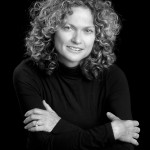“What I’m telling you I never told nobody.” So says the teenage narrator of Sandra Cisneros’s short story “One Holy Night.”
Every school year, I teach this short story. I want my students to see how Cisneros’s narrator draws us in. Sure her grammar is poor, but she understands the power—and privilege—associated with secrets.
Secrets make great stories.
I think I understood this even as a child, when during dinner parties, I liked to sit under the dining room table. If I sat long enough, the guests forgot I was there… and then I’d hear the best stories, ones not meant for a little girl’s consumption.
After we read “One Holy Night,” I give my students an assignment that makes some of them uncomfortable. I send them out to uncover—and bring me back—a secret.
I share my own tips for finding secrets (all writers have them). I tell my students about my favourite spots for listening in: a city bus, the doctor’s waiting room, the girls’ bathroom on Monday morning.
I explain that some of the best secrets are close at hand. If they have grandparents, I urge my students to uncover their secrets. I offer tips here, too. Always begin with a cup of tea. Never just say, “Tell me your secret.” Instead, tell a secret of your own.
Several of my novels for young adults are inspired by secrets. Scarred tells the story of a teen who self-mutilates after she is abused by a coach. All In is about teens hooked on online gambling who get into more debt than they can handle. If the plot sounds familiar it may be because it is based on events that occurred at a Montreal high school.
Once, at a conference in Toronto about the impact of the Holocaust on the second generation, I heard a therapist say, “There is no such thing as a family secret.” She explained that though family members may not know the details, they feel a secret’s existence.
I grew up with such a secret—and uncovered it for my 2008 YA novel, What World Is Left. As a teenager, my mother was imprisoned in Theresienstadt, a Nazi concentration camp in what is now the Czech Republic. She kept her experience there a secret for more than 60 years – until the daughter who used to sit under the dining room table pried the secret out of her and used it as the basis for her novel.
My mother, her brothers and parents survived the Holocaust because of my grandfather, a Dutch artist forced by the Nazis to produce propaganda art.
It wasn’t easy for my mum to share her secret. I told her her story might help young people going through their own difficult times. Besides, I said, I’m not really writing about you; I’m writing about a fictional girl inspired by you.
But all this time that I have been mining other people’s secrets, I’ve been keeping a secret of my own. This fall, I’ll publish my 14th YA novel. It’s taken me until now to share my own secret.
“What I’m telling you I never told nobody….”
At seventeen I fell in love with a man who turned out to be abusive. When he hit me—always in the face—I saw stars. I never told anyone what was going on. I was too ashamed. Now I see that I was keeping the secret from myself, too.
Here is what I have discovered in the telling of this story: sharing other people’s secrets, even those of people whom we love, is way easier than sharing our own.
When we tell our secret—even through fiction—we expose ourselves in the rawest way. But there’s a jittery freedom that comes with the telling. Once it’s out, a secret loses some of its power over us. If we’ve told our stories right, they will have a power over others and perhaps give them the courage to share their own secrets.
Monique Polak’s next YA novel, So Much It Hurts, will be released by Orca Book Publishers in September. Look for another YA novel from Monique, Straight Punch (Orca), in spring 2014. Monique teaches creative writing and journalism at Marianopolis College.
